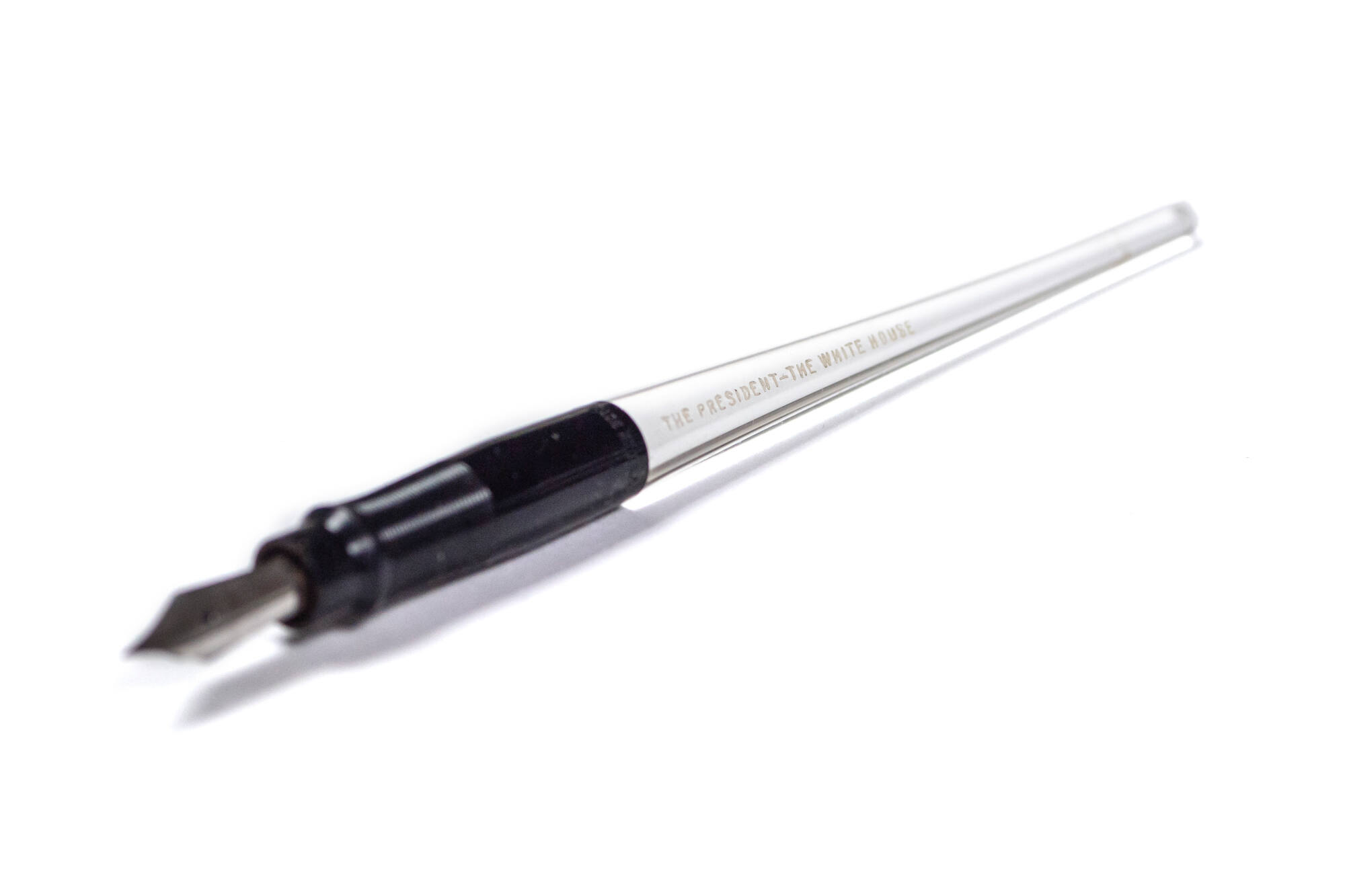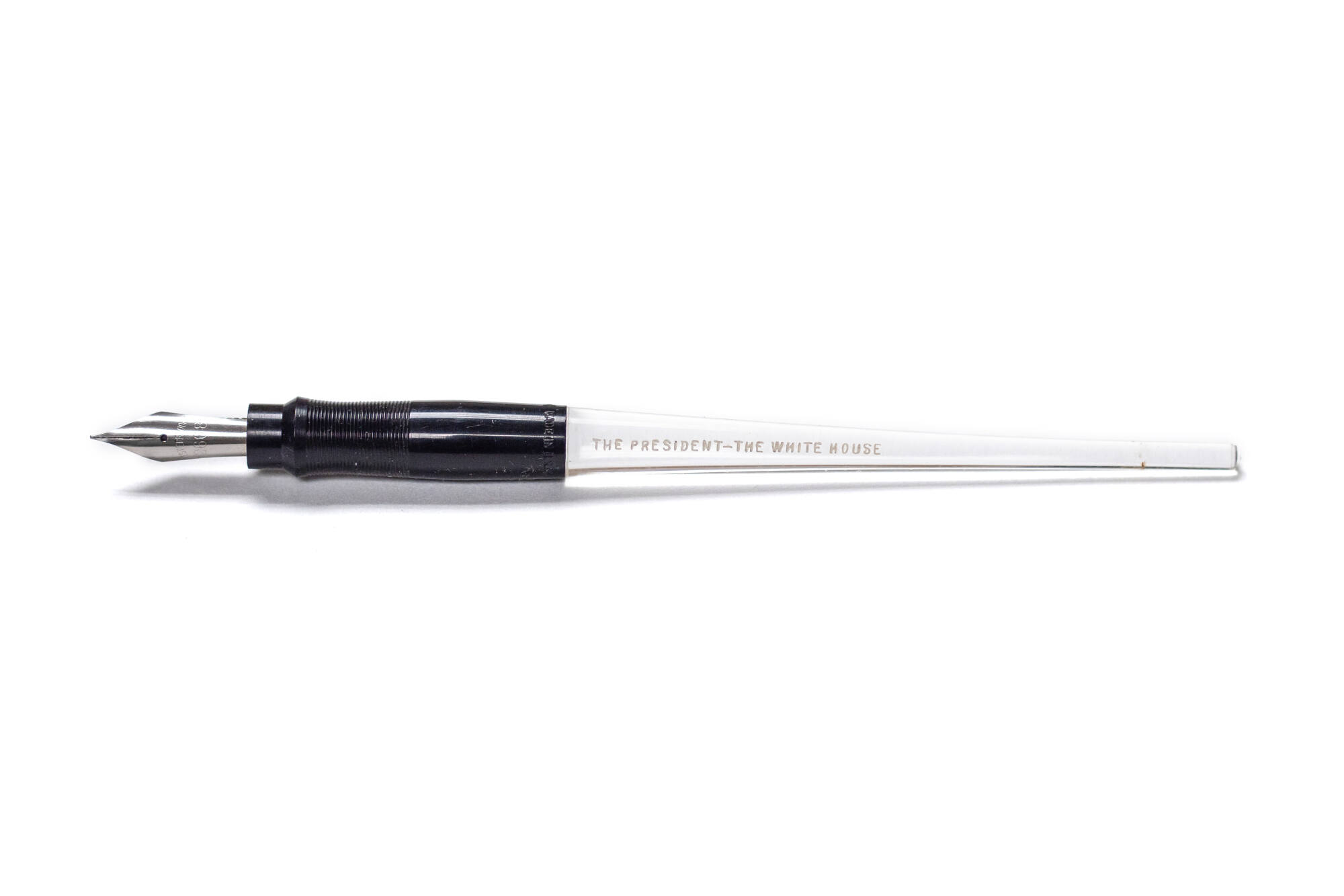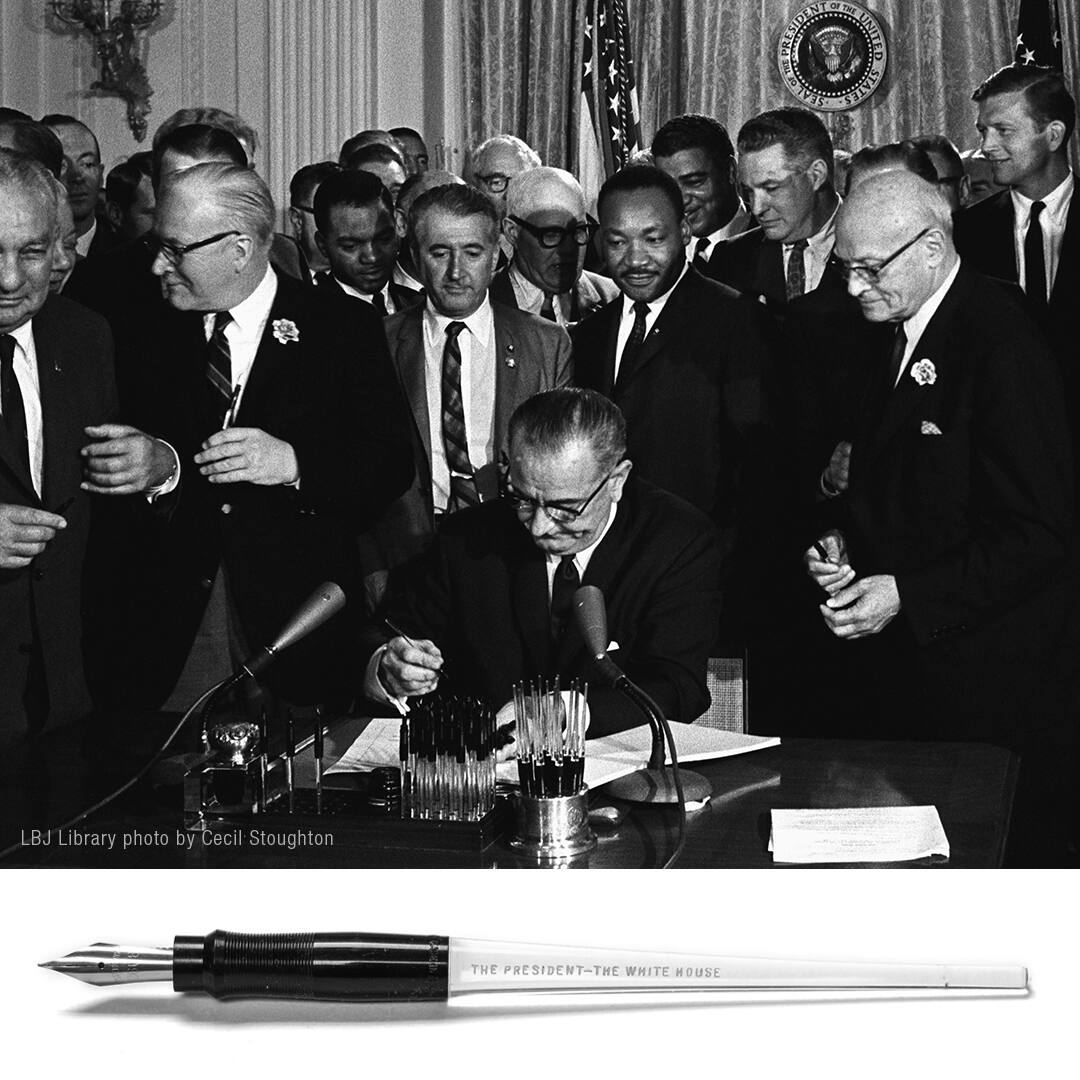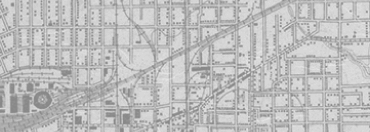


Back
Pen used by President Lyndon Johnson to sign the 1964 Civil Rights Act
This small pen is made of metal and plastic with a black plastic handle, clear plastic body, and a metal Esterbrook 2668 nib. It is 6 1/4" long × 7/16 in. in diameter (15.9 × 1.1 cm). The words "The President - The White House" is printed in white ink on the body of the pen. The words "Esterbrook" and "Made in U.S.A." are printed on the black pen grip. "Esterbrook / 2668 / Made in USA" is printed on the metal nib. The pen was one of more than 75 pens used by President Lyndon B. Johnson to sign the 1964 Civil Rights Act (H.R. 7152) on July 2, 1964. This pen was presented to Republican Senator Clifford P. Case, Jr. of New Jersey.
Pen used by President Lyndon Johnson to sign the 1964 Civil Rights Act
07/02/1964
Metal, Plastic
6 1/4 × 7/16 in. (15.9 × 1.1 cm)
The Sixth Floor Museum at Dealey Plaza Collection
2020.021.0001
In his first appearance before a joint session of Congress on November 27, 1963, President Lyndon Johnson emphasized that “no memorial oration or eulogy could more eloquently honor President Kennedy’s memory than the earliest possible passage of the civil rights bill for which he fought so long.” That promise, though controversial among congressional leadership in the South and even from Johnson’s own political party, was fulfilled on July 2, 1964, when Johnson signed the 1964 Civil Rights Act. On that evening, seated behind a table in the East Room of the White House, the President gave a televised address to the nation and then used more than 75 steel nib pens – each with a clear plastic body imprinted with the words “The President – The White House” – to formally sign that historic bill into law. As author and historian Mark K. Updegrove wrote, “After concluding his remarks, Johnson plunged pen after pen into an inkwell, incrementally applying his barbed signature to the Civil Rights Act while handing the used pens to the deserving stakeholders who had amassed behind him, among them Martin Luther King Jr., Hubert Humphrey, Robert Kennedy, and Roy Wilkins.” The first pen was notably given to Senate Minority Leader Everett Dirksen of Illinois, who had played a vital role in securing support for the legislation. Forty years later, the Illinois Senate seat once held by Dirksen would be won by future president Barack Obama. These bill-signing pens were treasured mementos at the time and today remain highly prized pieces of history, with some examples residing in museum collections such as the National Museum of African American History and Culture in Washington. In 2020, The Sixth Floor Museum at Dealey Plaza acquired one of these remarkable pens—a small but powerful physical embodiment of the Kennedy legacy in action. This particular pen was presented to Senator Clifford P. Case, Jr. of New Jersey (1955-73). Case, who was considered one of the most liberal Republican senators at the time, actively supported civil rights, voting in favor of all civil rights legislation in addition to the confirmation of Thurgood Marshall as the first African American justice of the Supreme Court. - Stephen Fagin, Curator
Esterbrook Pens, the more than 160-year-old manufacturer of these pens, were used by both the Kennedy and Johnson administrations for bill signing purposes. Physically, they are identical, so it is impossible to tell the pens form one administration apart from another. - Stephanie Allen-Givens, Collections and Exhibits Manager

Pen used by President Lyndon Johnson to sign the 1964 Civil Rights Act
This small pen is made of metal and plastic with a black plastic handle, clear plastic body, and a metal Esterbrook 2668 nib. It is 6 1/4" long × 7/16 in. in diameter (15.9 × 1.1 cm). The words "The President - The White House" is printed in white ink on the body of the pen. The words "Esterbrook" and "Made in U.S.A." are printed on the black pen grip. "Esterbrook / 2668 / Made in USA" is printed on the metal nib. The pen was one of more than 75 pens used by President Lyndon B. Johnson to sign the 1964 Civil Rights Act (H.R. 7152) on July 2, 1964. This pen was presented to Republican Senator Clifford P. Case, Jr. of New Jersey.
Pen used by President Lyndon Johnson to sign the 1964 Civil Rights Act
07/02/1964
Civil rights
Voting
Legacy
Kennedy, John F.
Johnson, Lyndon B.
Washington, D.C.
Metal, Plastic
6 1/4 × 7/16 in. (15.9 × 1.1 cm)
The Sixth Floor Museum at Dealey Plaza Collection
2020.021.0001
In his first appearance before a joint session of Congress on November 27, 1963, President Lyndon Johnson emphasized that “no memorial oration or eulogy could more eloquently honor President Kennedy’s memory than the earliest possible passage of the civil rights bill for which he fought so long.” That promise, though controversial among congressional leadership in the South and even from Johnson’s own political party, was fulfilled on July 2, 1964, when Johnson signed the 1964 Civil Rights Act. On that evening, seated behind a table in the East Room of the White House, the President gave a televised address to the nation and then used more than 75 steel nib pens – each with a clear plastic body imprinted with the words “The President – The White House” – to formally sign that historic bill into law. As author and historian Mark K. Updegrove wrote, “After concluding his remarks, Johnson plunged pen after pen into an inkwell, incrementally applying his barbed signature to the Civil Rights Act while handing the used pens to the deserving stakeholders who had amassed behind him, among them Martin Luther King Jr., Hubert Humphrey, Robert Kennedy, and Roy Wilkins.” The first pen was notably given to Senate Minority Leader Everett Dirksen of Illinois, who had played a vital role in securing support for the legislation. Forty years later, the Illinois Senate seat once held by Dirksen would be won by future president Barack Obama. These bill-signing pens were treasured mementos at the time and today remain highly prized pieces of history, with some examples residing in museum collections such as the National Museum of African American History and Culture in Washington. In 2020, The Sixth Floor Museum at Dealey Plaza acquired one of these remarkable pens—a small but powerful physical embodiment of the Kennedy legacy in action. This particular pen was presented to Senator Clifford P. Case, Jr. of New Jersey (1955-73). Case, who was considered one of the most liberal Republican senators at the time, actively supported civil rights, voting in favor of all civil rights legislation in addition to the confirmation of Thurgood Marshall as the first African American justice of the Supreme Court. - Stephen Fagin, Curator
Esterbrook Pens, the more than 160-year-old manufacturer of these pens, were used by both the Kennedy and Johnson administrations for bill signing purposes. Physically, they are identical, so it is impossible to tell the pens form one administration apart from another. - Stephanie Allen-Givens, Collections and Exhibits Manager













